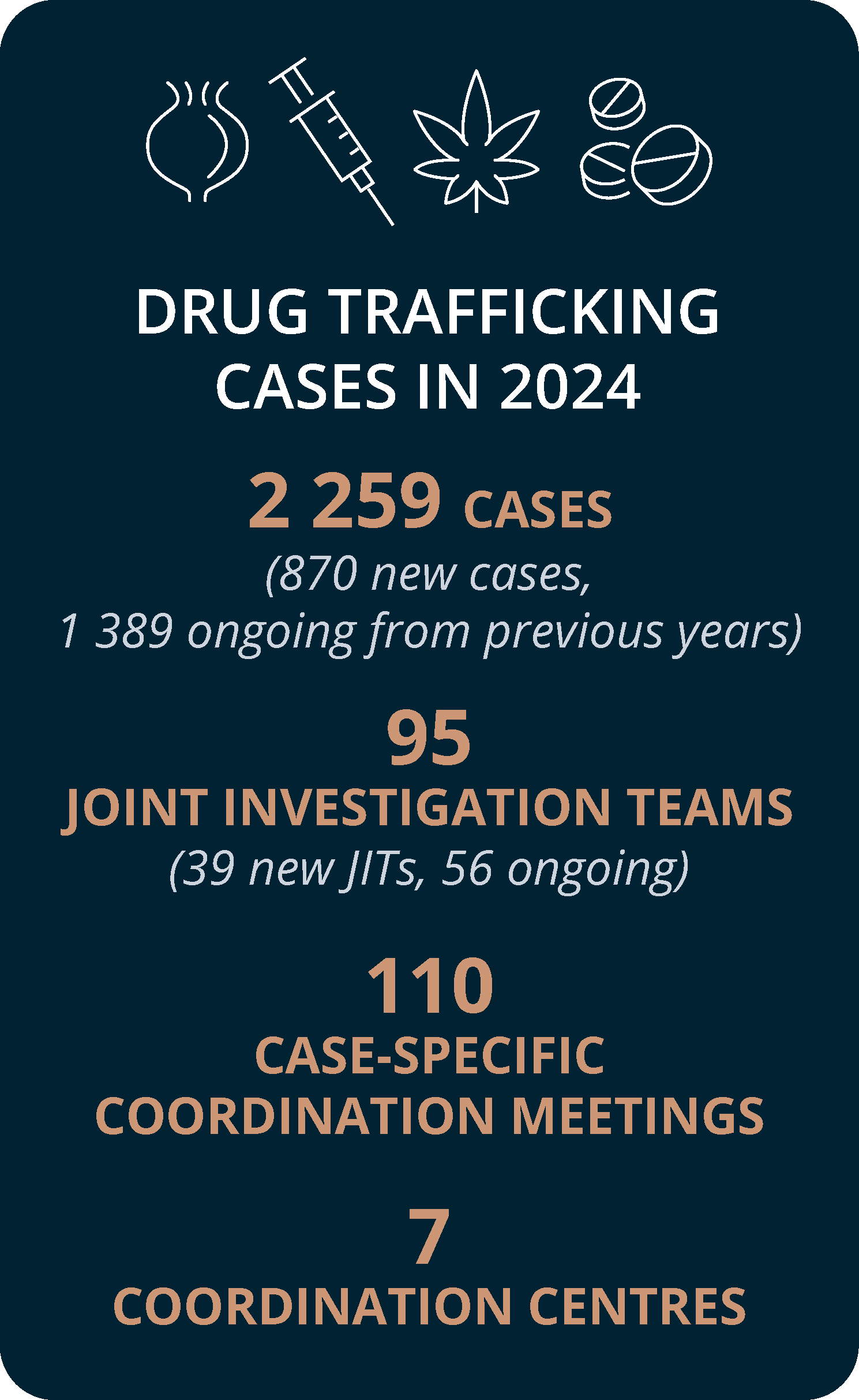Drug trafficking is one of the most serious security threats facing Europe today. The situation is escalating, with an unprecedented increase in the availability of illicit drugs in Europe, in particular cocaine from South America. Moreover, the level of violence associated with the drug trade appears to be increasing in Europe. The drug trade continues to be one of the main profit-generating activities of organised crime, estimated to represent around one fifth of global crime proceeds[1].
Eurojust’s operational support to drug trafficking cases

Drug trafficking was the second most frequently addressed crime area at Eurojust in 2024. The Agency dealt with over 2 000 cases, more than 800 of which were newly opened in 2024. The number of JITs related to drug trafficking cases increased by 42% compared to the previous year. A significant number of coordination meetings and action days were organised by Eurojust, enabling judicial cooperation that dismantled drug trafficking networks and brought criminals to justice.
In 2024, Germany initiated the largest number of cross-border drug trafficking cases at Eurojust, followed by Italy. In 2024, France was the country most frequently requested to participate in transnational drug trafficking cases handled by Eurojust, followed by Spain and the Netherlands.
Albania was the third country that initiated the most international drug trafficking cases at the Agency in 2024, while the United Kingdom, followed by Switzerland and Norway, was the third country most frequently requested to participate in such cases in 2024.
During the year, Eurojust witnessed a rise in the number of requests for cooperation with third countries on drug trafficking cases. This led the Agency to analyse best practices in this area, based on the practical experience of Liaison Prosecutors posted at Eurojust from several non-EU countries (see key publication). In 2024, several complex drug trafficking cases involving Latin American and Western Balkan countries were successfully supported by the Agency (see chapter 2).
A notable proportion of Eurojust’s drug trafficking cases in 2024 were investigations linked to data coming from encrypted communication networks used by OCGs, such as EncroChat and Sky ECC.
Other trends observed in Eurojust’s 2024 drug trafficking casework include a significant increase in drug seizures at small ports around Europe (compared to larger ports in 2023), and the increasing sophistication with which OCGs camouflage drugs for transport.
Strategic developments impacting Eurojust’s drug trafficking casework
In September 2024, the European Judicial Organised Crime Network (EJOCN) – a priority measure in the EU Roadmap to fight drug-trafficking and organised crime – was launched at Eurojust (see chapter 2 and section 3.11).
The EJOCN’s initial priority is to combat drug-related organised crime connected to European ports and other logistical hubs. As key gateways to Europe, ports are not only important hubs for trade but also for crime. 70% of drug seizures by customs take place in ports, while 50% of criminal networks operating in the EU are involved in drug trafficking. Criminals involved in drug trafficking often commit extreme violence, money laundering, as well as other offences.

